Individual Procrastination

What are the consequences of chronic procrastination ?
Procrastination is a common behavioral pattern where individuals delay or put off tasks until the last minute. While occasional procrastination may not cause significant harm, chronic procrastination can lead to various negative consequences. In this article, we will discuss the potential effects of persistent procrastination on an individual's life. Chronic procrastination often results in increased stress levels due to the accumulation of unfinished tasks and deadline pressures. Procrastination leads to poor time management skills, as individuals tend to underestimate the time required to complete tasks. Chronic procrastination can also have a negative impact on an individual's self-efficacy, or their belief in their ability to succeed. Procrastination can strain personal relationships, both professionally and personally. Colleagues and friends may become frustrated with the individual's lack of commitment and follow-through, leading to conflicts and misunderstandings. In academic settings, chronic procrastination can lead to poor grades and missed opportunities for learning. Similarly, in professional environments, consistent procrastination can hinder career advancement and limit job opportunities. Chronic stress from procrastination can take a toll on an individual's physical health. The constant pressure and anxiety associated with procrastination can contribute to issues such as headaches, digestive problems, and weakened immune function.
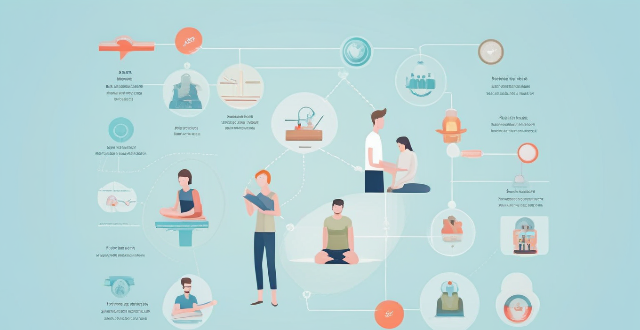
Is there a connection between procrastination and mental health ?
Procrastination is a common behavior that can have negative consequences on mental health, including increased stress and anxiety, depression, low self-esteem, and poor time management skills. To overcome procrastination, one can set realistic goals, create a schedule, eliminate distractions, use timers, reward themselves, seek support, practice mindfulness, and be kind to themselves.
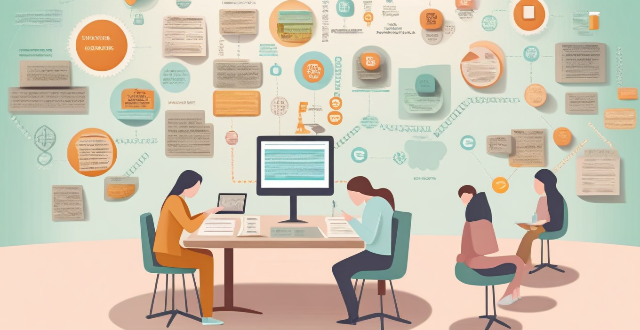
How can I avoid procrastination and stay motivated to learn ?
Procrastination is a common problem that affects many people, especially when it comes to learning. To avoid procrastination and stay motivated to learn, set clear goals, create a study schedule, eliminate distractions, use rewards and incentives, find a study group or partner, and practice self-care.
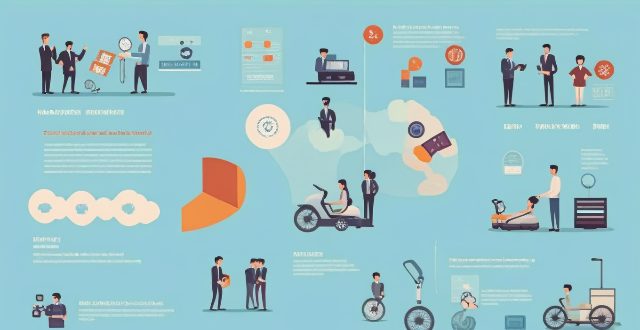
How does procrastination affect productivity and what can be done to avoid it ?
Procrastination negatively impacts productivity by leading to decreased efficiency, increased stress levels, poor quality work, and missed opportunities. To combat procrastination, individuals should set clear goals, prioritize tasks, break down larger tasks into smaller chunks, eliminate distractions, use time management techniques, and hold themselves accountable. Implementing these strategies can help improve productivity and achieve long-term success.

How can I overcome procrastination ?
Procrastination, or the act of delaying or postponing tasks, is a common issue that affects many people. It can be challenging to overcome, but with some strategies and techniques, it's possible to break free from this habit and become more productive. Here are some tips on how to overcome procrastination: 1. Identify the Root Cause: The first step in overcoming procrastination is to identify its root cause. Ask yourself why you are procrastinating. Is it because the task is boring, difficult, or uninteresting? Or is it because you lack motivation or feel overwhelmed by the task? Once you have identified the reason, you can take steps to address it. 2. Set Clear Goals: Setting clear goals is essential for overcoming procrastination. When you have a specific goal in mind, it becomes easier to focus your efforts and avoid distractions. Make sure your goals are realistic, measurable, and time-bound so that you can track your progress and stay motivated. 3. Break Tasks into Smaller Chunks: Breaking tasks into smaller chunks makes them more manageable and less daunting. Instead of trying to tackle a large project all at once, divide it into smaller tasks that you can complete one at a time. This will help you feel more accomplished and motivated as you make progress towards your goal. 4. Use Time Management Techniques: Effective time management is crucial for overcoming procrastination. Use techniques such as the Pomodoro Method, where you work for 25 minutes and then take a five-minute break, or the Eisenhower Matrix, which helps you prioritize tasks based on their urgency and importance. These techniques can help you stay focused and avoid distractions while working on tasks. 5. Eliminate Distractions: Distractions are one of the biggest obstacles to productivity. To overcome procrastination, eliminate as many distractions as possible while working on tasks. Turn off your phone, close unnecessary tabs on your computer, and find a quiet place to work where you won't be interrupted. 6. Reward Yourself: Finally, reward yourself for completing tasks or reaching milestones. This will help you stay motivated and maintain your focus on your goals. Choose rewards that are meaningful to you, whether it's taking a break to read a book or treating yourself to a favorite snack. In conclusion, overcoming procrastination requires identifying its root cause, setting clear goals, breaking tasks into smaller chunks, using time management techniques, eliminating distractions, and rewarding yourself for progress made. By implementing these strategies, you can become more productive and achieve your goals without the hindrance of procrastination.

What are some effective strategies for beating procrastination ?
Strategies for Beating Procrastination include setting clear goals, breaking tasks into smaller chunks, using time management tools, eliminating distractions, rewarding oneself, getting an accountability partner, and practicing mindfulness. These strategies can help individuals overcome procrastination and increase productivity by focusing on specific tasks, prioritizing activities, avoiding interruptions, staying motivated, holding oneself accountable, and becoming more aware of their thoughts and feelings.

How can I overcome procrastination and stay motivated to study ?
Procrastination is a common problem that affects many students. It can be challenging to stay motivated and focused on your studies, especially when there are so many distractions around you. However, there are several strategies you can use to overcome procrastination and stay motivated to study. Here are some tips: - Set clear goals for yourself. Make sure your goals are specific, measurable, achievable, relevant, and time-bound (SMART). For example, instead of saying "I want to do well in my math class," say "I want to score at least 90% on my next math test." Having a clear goal will help you stay focused and motivated. - Break tasks into smaller, more manageable chunks. Large tasks can be overwhelming and lead to procrastination. To avoid this, break your tasks into smaller, more manageable chunks. For example, if you have a research paper to write, break it down into smaller tasks such as selecting a topic, conducting research, creating an outline, writing the introduction, etc. Completing each small task will give you a sense of accomplishment and keep you motivated. - Create a study schedule. Creating a study schedule can help you stay organized and on track. Allocate specific times for studying, breaks, and other activities. Stick to your schedule as much as possible, but also be flexible enough to adjust it if necessary. Having a plan will help you avoid wasting time and reduce the likelihood of procrastination. - Eliminate distractions. Distractions can easily lead to procrastination. To avoid this, eliminate distractions such as social media, television, or video games during your study time. Find a quiet place where you can focus without interruptions. Turn off your phone or put it on silent mode to avoid distractions from notifications. - Use time management techniques. Using time management techniques such as the Pomodoro technique or the Eisenhower matrix can help you stay focused and productive. The Pomodoro technique involves working for 25 minutes and then taking a five-minute break. The Eisenhower matrix helps you prioritize tasks based on their urgency and importance. These techniques can help you manage your time effectively and reduce procrastination. - Reward yourself. Rewarding yourself after completing a task can help you stay motivated. Set up rewards for yourself after completing each task or reaching a milestone. For example, you could treat yourself to a favorite snack or watch an episode of your favorite TV show after finishing a study session. This will give you something to look forward to and keep you motivated. - Seek support. Finally, seek support from friends, family, or teachers if you're struggling with procrastination. They can offer encouragement, advice, or accountability to help you stay on track. Joining a study group or finding a study partner can also provide motivation and support. In conclusion, overcoming procrastination requires discipline, planning, and self-motivation. By setting clear goals, breaking tasks into smaller chunks, creating a study schedule, eliminating distractions, using time management techniques, rewarding yourself, and seeking support, you can stay motivated and focused on your studies.

Are there any books or resources that can help me overcome procrastination ?
This article explores some books and resources that can help you overcome procrastination. The first book, "The Procrastination Equation" by Piers Steel, provides a comprehensive understanding of procrastination and offers practical tips and strategies to overcome it. The second book, "Eat That Frog!" by Brian Tracy, offers 21 practical strategies for overcoming procrastination and getting more done in less time. The third book, "The Now Habit" by Neil Fiore, offers a unique approach to overcoming procrastination by focusing on the present moment and enjoying guilt-free play. The fourth book, "The War of Art" by Steven Pressfield, offers a powerful perspective on procrastination as an inner creative battle that needs to be won. By implementing these strategies and techniques, you can break free from the cycle of procrastination and start getting things done.

How can I identify the root cause of my procrastination and address it effectively ?
This guide provides a comprehensive understanding of procrastination, its common causes, and strategies to address it. It emphasizes the importance of identifying personal root causes such as fear of failure, perfectionism, lack of motivation, distraction, and poor time management. The guide offers targeted strategies for each cause, including breaking tasks into smaller steps, setting realistic standards, finding purpose, minimizing distractions, and using time management tools. It concludes by encouraging patience, self-awareness, and consistent effort in overcoming procrastination.

How can I break the cycle of procrastination and start being more productive ?
Procrastination is a common problem that affects many people. It's a habit that can be difficult to break, but with the right strategies, it's definitely possible to increase productivity and get more done. Here are some tips to help you break the cycle of procrastination: 1. Set clear goals for yourself. Write down exactly what you want to achieve and by when. This will give you a sense of direction and make it easier to focus on the task at hand. 2. Prioritize tasks based on their importance and urgency. Start with the most important tasks first and work your way down the list. This will help you stay motivated and focused, as you'll see progress being made. 3. Use time management techniques such as the Pomodoro technique or time blocking to stay on track and avoid distractions. These techniques involve breaking down your work into smaller, manageable chunks and taking regular breaks to recharge. 4. Eliminate distractions by turning off notifications on your phone and computer, finding a quiet place to work, and letting others know that you need some uninterrupted time to focus on your tasks. 5. Hold yourself accountable by finding someone who can hold you accountable for your progress, such as a friend, family member, or colleague. Check in with them regularly to report on your progress and ask for support if needed. 6. Reward yourself for completing tasks. This could be something small like taking a break to read a book or watch an episode of your favorite TV show. Rewards can help motivate you to keep going and make the process of breaking the cycle of procrastination more enjoyable.

Why do people procrastinate and how can they stop ?
Procrastination is a common behavior influenced by factors like lack of motivation, fear of failure or success, difficulty with self-regulation, and environmental distractions. To overcome procrastination, individuals can set clear goals, improve time management, boost motivation, address emotional barriers, and develop self-regulation skills. Consistent implementation of these strategies can lead to increased productivity and reduced procrastination over time.

How can I stick to my study schedule without getting distracted ?
Sticking to a study schedule without getting distracted requires discipline, motivation, and the right strategies. Here's how you can stay on track with your studies: 1. Setting clear goals: Define objectives and break them down into smaller parts to make progress without feeling overwhelmed. 2. Creating a conducive environment: Minimize distractions by finding a quiet space, turning off notifications, and organizing your study area. 3. Utilizing time management techniques: Use a planner to allocate specific time slots for studying and implement the Pomodoro Technique to maintain concentration and prevent burnout. 4. Staying motivated: Give yourself small rewards after completing study sessions or achieving milestones, and visualize success to provide the necessary push to continue. 5. Taking care of yourself: Incorporate regular exercise and ensure adequate sleep to improve mental clarity and concentration. 6. Eliminating procrastination: Tackle procrastination by addressing its root cause and starting with the hardest task to reduce the likelihood of procrastination. By consistently applying these strategies, you can enhance your focus and efficiency in your academic pursuits. Remember, consistency is key, so persevere and stay committed to your study schedule for the best results.

How can I overcome procrastination and lack of motivation when it comes to studying ?
Overcoming procrastination and lack of motivation in studying requires discipline, planning, and self-awareness. By setting clear goals, creating a study plan, eliminating distractions, taking breaks, and rewarding yourself, you can improve your productivity and focus while studying. Remember to be patient with yourself and celebrate small successes along the way. With consistent effort and dedication, you can overcome these challenges and achieve your academic goals.

Can team sports contribute to mental rejuvenation more than individual sports ?
Team sports may contribute more to mental rejuvenation than individual sports due to increased social interaction, motivation, and sense of belonging. However, individual preferences vary, and some people may find greater mental rejuvenation through individual sports or other activities that bring them joy and fulfillment.

How can team sports help in individual skill development ?
Team sports contribute significantly to individual skill development by improving communication skills, enhancing leadership abilities, increasing self-confidence, bettering time management, improving social skills, promoting physical fitness and coordination, providing opportunities to learn from mistakes, and fostering adaptability.

How does team sports impact mental health compared to individual sports ?
This article explores how team sports impact mental health compared to individual sports. It highlights the social support and belongingness provided by team sports, which can reduce feelings of isolation and loneliness. The article also discusses how team sports promote accountability and responsibility, helping individuals develop discipline and self-control. Additionally, it emphasizes the importance of goal setting and achievement in team sports, which can boost self-esteem and confidence. Overall, the article concludes that team sports have a significant impact on mental health compared to individual sports due to their social aspect.

How do individual versus team sports impact self-esteem in young people ?
The text discusses the impact of individual versus team sports on self-esteem in young people. It outlines key points such as the focus on personal growth and discipline in individual sports, and the social support and collaboration learned in team sports. The benefits of each type of sport are also highlighted, including increased autonomy and clear feedback from individual sports, and social skills development and resilience from team sports. A comparative analysis is provided, discussing the pros and cons of each type of sport in relation to self-esteem. The conclusion suggests that both types of sports can positively impact self-esteem, but finding the right fit for each individual is crucial.

Is there a difference in mental health benefits between individual and group exercises ?
Exercise plays a vital role in maintaining good mental health, with both individual and group exercises offering unique benefits. Individual exercises provide flexibility, focus, and personal challenge, while group exercises offer social support, motivation, and accountability. Both types of exercise have been shown to reduce stress, anxiety, and depression while improving mood, self-esteem, and cognitive function. Ultimately, finding an activity that you enjoy and can consistently incorporate into your lifestyle is key to maintaining good mental health through exercise.

How do individual versus team sports differ in their impact on child development ?
Individual sports foster self-reliance and technical mastery, while team sports emphasize social skills and emotional intelligence. Both have unique benefits for child development, and the choice should consider the child's personality and desired skill development. A combination of both might provide the most well-rounded experience.

How do the principles of sports biomechanics differ between individual and team sports ?
This text discusses the principles of sports biomechanics in individual and team sports. It highlights the differences in kinematics, kinetics, and coordination between the two types of sports. In individual sports, there is a focus on precision, technique optimization, and personal performance, while team sports emphasize strategic interactions, group coordination, and adaptability to complex game situations. The text concludes by emphasizing the importance of understanding these distinctions for coaches and athletes to tailor their training approaches to best suit the specific demands of their chosen sport.

How can self-assessment help me set realistic goals for myself ?
The article discusses the importance of self-assessment in goal setting. By identifying one's strengths and weaknesses, evaluating progress, and setting realistic goals, individuals can increase their chances of success and avoid feeling overwhelmed or discouraged. The article provides tips for each step of the self-assessment process, including breaking larger goals into smaller steps, prioritizing based on importance and urgency, being specific about what is wanted to achieve and why, considering potential obstacles, and developing strategies to overcome them. Ultimately, self-assessment helps individuals gain a better understanding of their capabilities and what steps need to be taken to achieve their goals.

How is individual income tax calculated ?
Individual income tax calculation involves determining gross income, subtracting allowable deductions, calculating adjusted gross income (AGI), identifying tax credits, calculating taxable income, applying tax rates, and considering withholding and estimated tax payments. The process varies slightly by jurisdiction but generally follows these key steps. It is recommended to consult with a tax professional or use reliable tax preparation software to ensure accuracy and maximize any applicable deductions and credits.
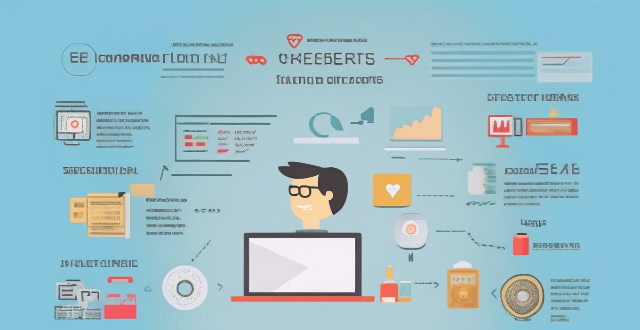
What is the Pomodoro Technique and does it really work for enhancing focus ?
The Pomodoro Technique is a time management method designed to improve focus and productivity. It involves working for 25 minutes followed by a short break, with longer breaks after every four Pomodoros. The technique aims to enhance concentration, manage time effectively, reduce procrastination, and boost overall productivity. However, its effectiveness can vary based on individual adaptability and workflow.

Can data analytics be used to personalize learning experiences for individual students ?
Data analytics is a powerful tool that can be used to personalize learning experiences for individual students by collecting data related to student performance, preferences and behaviors. This allows educators to tailor instruction to meet the unique needs of each learner. Data analytics can improve student outcomes, provide tailored instructional approaches, and use resources more efficiently. It can also identify student needs, design personalized learning plans and enhance teaching practices. By leveraging the power of data analytics, educators can better understand their students' needs, design effective learning plans, and enhance their teaching practices to promote improved outcomes for all learners.

Can individual actions significantly contribute to addressing climate change from an ethical standpoint ?
From an ethical standpoint, individual actions can significantly contribute to addressing climate change. This is because every individual has a responsibility to take care of the environment and protect it for future generations. Here are some ways in which individual actions can make a difference: - Reducing Carbon Footprint: One of the most effective ways to address climate change is by reducing our carbon footprint. This can be done by making small changes in our daily lives, such as using public transportation or carpooling instead of driving alone, turning off lights and electronics when not in use, eating less meat and more plant-based foods, and buying products with less packaging and recycling whenever possible. By making these changes, we can reduce our carbon emissions and help slow down the effects of climate change. - Supporting Renewable Energy: Another way individuals can contribute to addressing climate change is by supporting renewable energy sources. This can be done by installing solar panels or wind turbines on your property (if feasible), switching to a green energy provider that uses renewable energy sources, and encouraging your local government to invest in renewable energy projects. By supporting renewable energy, we can reduce our reliance on fossil fuels and help transition to a cleaner, more sustainable energy system. - Educating Others: Finally, one of the most important things individuals can do to address climate change is to educate others about its severity and urgency. This can be done by sharing information about climate change with friends and family, attending protests or rallies to raise awareness about the issue, and writing letters to elected officials urging them to take action on climate change. By educating others, we can spread awareness about the issue and encourage more people to take action to address it.

How can individual athletes contribute to environmental conservation efforts through their lifestyle choices ?
Individual athletes can contribute to environmental conservation through eco-friendly habits and sustainable practices, such as reducing energy consumption, making conscious transportation choices, adopting a sustainable diet, conserving water, reducing waste, and engaging in advocacy and education. These actions not only help the planet but also inspire others to follow their lead, creating a ripple effect of positive change for the environment.

What is the role of individuals in addressing climate change and environmental degradation ?
This article discusses the role of individuals in combating climate change and environmental degradation. It highlights the cumulative impact of individual actions, their potential to inspire others, and the political pressure they can exert. The article provides practical steps individuals can take, such as reducing their carbon footprint, supporting renewable energy, waste reduction and recycling, advocating for environmental policies, and spreading awareness. It emphasizes that collective efforts can make a significant difference in creating a more sustainable future for our planet.
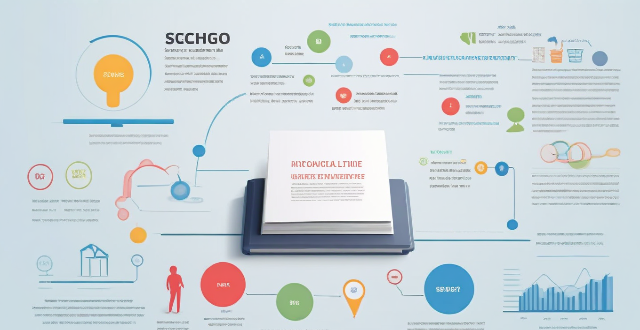
What role does self-discipline play in following a study plan ?
Self-discipline is crucial in following a study plan effectively. It involves setting goals, prioritizing tasks, maintaining focus on objectives, and avoiding distractions. By breaking down long-term goals into smaller, manageable tasks and allocating time wisely, self-disciplined individuals can maximize productivity and achieve academic success efficiently. Consistency, overcoming procrastination, and staying motivated are also key factors in sticking to a study plan. Developing strong self-discipline skills can help students reach their full potential.

How can I stay motivated and avoid procrastinating on important tasks ?
Strategies to overcome procrastination include setting clear goals, creating a schedule or to-do list, eliminating distractions, and staying accountable. Breaking down goals into smaller tasks can also help in maintaining motivation.